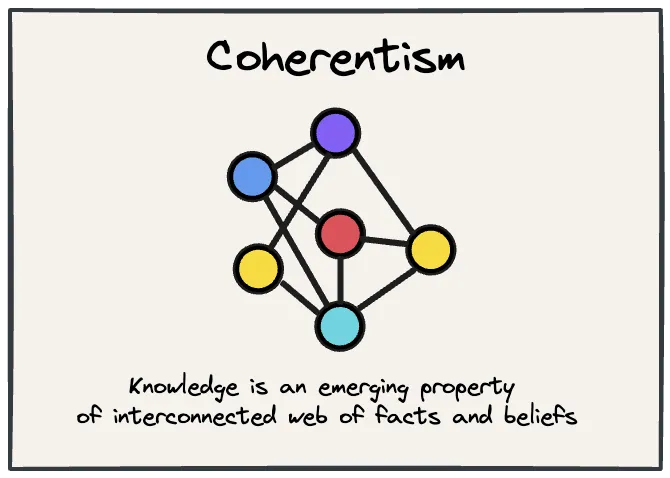Coherentism
Notes
Coherentism treats knowledge as an emergent property. Meaning that knowledge doesn't necessarily stem from a logical connection of deduction or induction - as claimed by Fundamentalism, but rather it is the connection we make between different points of knowledge, the attempt to create a unified narrative out of many different facts.
Learning therefore is not a matter of replacing previous knowledge, but rather incorporating into the existing set of beliefs/knowledge with as little modifications as possible. Unfortunately, this is a double edged sword when it comes to adjusting our beliefs. This is why trying to argue with someone with different opinions with facts will not work. Even if they accept those facts, it is the narrative we enforce on those facts that determine (and causes) our world view. Like a case of Is vs ought, the connection between facts and values is often misleading, and it is more likely that we will try to find a way to rationalize, i.e to feel as if the facts don't contradict our network of beliefs, rather than updating it accordingly.
To change someone's opinion, one must change the entire structure, the entire network of beliefs they hold. We can't settle for replacing the stem, because there is no such thing.
However, this feat also demonstrates our potential for creativity. Information has more than just absolute value, it also has relational value depending on the viewer and the connection we make with other points of information. It is up to us, the connection makers, the weavers of narratives, to find new ways of connecting the same information, or using an existing method to connection new information. Transferred Learning
Visual

Overview
🔼Topic:: Epistemology (Map) 🔼Topic:: Creativity (Map) ↩️Origin:: 🔗Link::